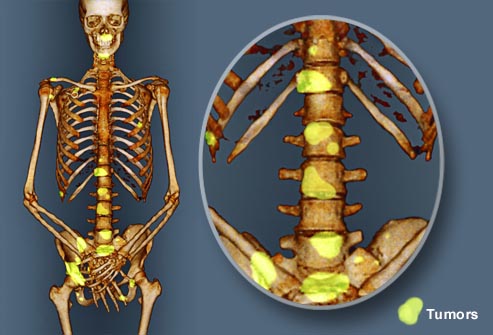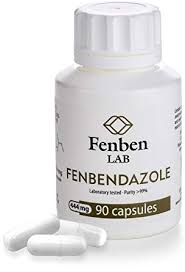
Recently Diagnosed or Relapsed? Stop Looking For a Miracle Cure, and Use Evidence-Based Therapies To Enhance Your Treatment and Prolong Your Remission
Multiple Myeloma an incurable disease, but I have spent the last 25 years in remission using a blend of conventional oncology and evidence-based nutrition, supplementation, and lifestyle therapies from peer-reviewed studies that your oncologist probably hasn't told you about.
Click the orange button to the right to learn more about what you can start doing today.
- You are here:
- Home »
- Blog »
- Multiple Myeloma »
- Stage 1 Myeloma, Fenbendazole…
Stage 1 Myeloma, Fenbendazole…

“Fenbendazole is being investigated for use as a cancer treatment in humans.[1]…and have been reported to elicit promising antitumor effect (11–13)…
Hi David- Wondering about fenbendazole… My husband was diagnosed in July, 2019 with stage 1 Multiple Myeloma. He had 3 spinal tumors and was 80% paralyzed because of vertebral collapse impinging upon the spinal cord.
He was given radiation, then began Darzalex, and zometa infusions , dexamethasone and revlimid. He is now on maintenance therapy with the Darzalex monthly, zometa quarterly, revlimid 3 weeks out of 4 and dexamethasone with the monthly Darzalex.
He had spine surgery Dec, 2019 from T2 to T12. Spinal cord was decompressed and he now walks with a cane.
Now my question. Would fenbendazole be an option for him at some point? He is on morphine and norco for pain, mainly around the shoulder blade and rib areas.
NDMM Caregiver
Hi NDMM Caregiver-
I am sorry to read of your husband’s MM/spine challenges. I had only one lesion at diagnosis but even the one caused similar collapse and spinal cord problems.
As for Fenbendazole, two things.
- I have read several positive testimonials from MM patients and Fenbendazole.
- At the same time, this therapy is untested, not studied to any degree. I can’t recommend a MM therapy that I know little about.
As for your husband’s conventional therapies, I understand local radiation to try to stabilize other lesions in his spine.
- healthy kidney function?
- relatively low M-spike?
- relatively low percentage of MM plasma cells in his bone marrow?
If your husband underwent Darzelex, Revlimid (lenalidomide) and Dexamethasone as his initial therapy, my guess is that he is not eligible for an autologous stem cell transplant (ASCT)?
While it is fine not to have an ASCT for a stage I MM patient, if your husband has been categorized as “not eligible” for an ASCT then he must be 70 or older and/or have co-morbidities meaning other health issues that make it difficult for him to manage high dose, aggressive chemotherapy (ASCT).
That being the case, your husband’s induction therapy of Dar.Rev. Dex. is a lot of toxicity.
- Did/does he experience any side effects?
- How has your husband responded?
- How does he feel now?
As for his previous bone damage, I encourage him to undergo non-toxic bone health therapies. I will link the MM CC bone health guide below.
Zometa has been shown to harden the outside of the bone but does little to enhance bone mineral density. Non-toxic therapies such as moderate exercise, nutrition and supplementation can do wonders for bone health.
If your husband has stabilized his MM, please consider moderating or even discontinuing the toxicity his body is managing. Please consider taking a therapy vacation and instead pursuing anti-MM nutrition, supplementation and lifestyle therapies shown to manage his health as well as his MM.
- To Learn More about Newly Diagnosed Multiple Myeloma Stage 1- click now
- To Learn More about Fenbendazole aka fenben, click now
Let me know if you have any questions.
Hang in there,
David Emerson
- MM Survivor
- MM Cancer Coach
- Director PeopleBeatingCancer
Recommended Reading:
- Multiple Myeloma- Newly Diagnosed Without Intent to ASCT
- Multiple Myeloma Stem Cell Transplant- Safe for Elderly- But Beneficial?
- Multiple Myeloma Cancer Coaching Q & A
Daratumumab plus Lenalidomide and Dexamethasone for Untreated Myeloma
“Lenalidomide plus dexamethasone is a standard treatment for patients with newly diagnosed multiple myeloma who are ineligible for autologous stem-cell transplantation…
Among patients with newly diagnosed multiple myeloma who were ineligible for autologous stem-cell transplantation, the risk of disease progression or death was significantly lower among those who received daratumumab plus lenalidomide and dexamethasone than among those who received lenalidomide and dexamethasone alone.
A higher incidence of neutropenia and pneumonia was observed in the daratumumab group…
In addition, a higher percentage of patients in the daratumumab group than in the control group had dose modifications of lenalidomide owing to adverse events that occurred after the start of treatment, including lenalidomide
- discontinuations (20.9% and 17.0%, respectively) or
- dose delays,
- reductions,
- reescalations, or
- skipping (combined, 77.5% and 64.7%, respectively)…
The percentage of patients with an overall response was 92.9% in the daratumumab group and 81.3% in the control group (P<0.001)…
The results of this phase 3 trial showed that among patients with newly diagnosed multiple myeloma who were ineligible for stem-cell transplantation, treatment with daratumumab plus lenalidomide and dexamethasone resulted in significantly longer progression-free survival than lenalidomide and dexamethasone alone…
Fenbendazole
“Fenbendazole is a broad spectrum benzimidazole anthelmintic used against gastrointestinal parasites including: giardia, roundworms, hookworms, whipworms, the tapeworm genus Taenia (but not effective against Dipylidium caninum, a common dog tapeworm), pinworms, aelurostrongylus, paragonimiasis, strongyles, and strongyloides that can be administered to sheep, cattle, horses, fish, dogs, cats, rabbits, and seals.
Fenbendazole is being investigated for use as a cancer treatment in humans.[1]
Targeting the Microtubular Network as a New Antimyeloma Strategy
“Benzimidazoles, including albendazole, fenbendazole, mebendazole, and nocodazole, have been used as anthelmintics and fungicides on the basis of their antimicrotubule activity (10) and have been reported to elicit promising antitumor effect (11–13)…
Nocodazole alone and in combination with dexamethasone inhibits multiple myeloma tumor growth in vitro and in vivo
To further investigate the effects of nocodazole, we tested nocodazole in combination with other compounds. As shown in Fig. 5A, combination of nocodazole with lenalidomide, dexamethasone, or a novel histone deacetylase inhibitor inhibitor KD5170 (17) resulted in a significant (P < 0.05) inhibition of proliferation compared with either drug alone…
In summary, our studies show that nocodazole targets the multiple myeloma cell and its microenvironment (14). Nocodazole mediates its antimyeloma activity through sequential microtubular network damage and cell-cycle arrest. JNK-mediated Bcl-2 phosphorylation results in multiple myeloma cell apoptosis. Nocodazole overcomes drug resistance, decreases tumor growth, and extends survival in vivo in human xenograft mice model. The known toxicity profile and selective activity against myeloma cells provide the rationale for considering nocodazole as future treatment for multiple myeloma.”
Unexpected Antitumorigenic Effect of Fenbendazole when Combined with Supplementary Vitamins
“This study demonstrated that a combination of supplemented vitamins and fenbendazole in the diet inhibited growth of a human lymphoma cell line in SCID mice, whereas fenbendazole or vitamins alone had no growth inhibitory effect…
Our study showed that fenbendazole alone did not significantly affect growth of the P493-6 human lymphoma cell line in SCID mice. Most importantly, our observation that fenbendazole in combination with supplemented vitamins significantly inhibited tumor growth has implications for its use during antitumor studies because it may cause unpredictable interactions with test substances and thus alter research results…”


